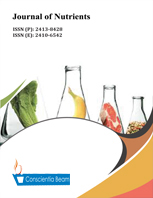Contribution of Integrated Nutrient Management Practices for Sustainable Crop Productivity, Nutrient Uptake and Soil Nutrient Status in Maize Based Cropping Systems
DOI:
https://doi.org/10.18488/journal.87/2015.2.1/87.1.1.10Abstract
Over applications of inorganic fertilizers lead nutrient imbalances, inefficiency and environmental contamination while insufficient application of nutrients causes soil fertility depletion. This problem drives the use of organic manures, which supply balanced micro and macro nutrients to the current crop and also leave a substantial residual effect on the succeeding crops in different cropping systems. But it is required in bulk as it contains nutrients in small proportion. Hence its availability is scarce for large farms. Therefore, to eliminate both excessive and inadequate applications, judicious use of integrated nutrient management is best alternative for sustainable crop productivity while maintaining soil fertility status in maize and other cereal based cropping systems. Such integrated applications have complementary and synergistic effects. Various research results have confirmed that INM improves sustainable crop productivity and soil fertility status rather than organic or mineral fertilizers alone. Most of research findings reviewed in this paper indicated that among the alternative integrated nutrient management combinations, application of chemical fertilizers integrated with organic manures in equal proportion significantly improved sustainable crop productivity, nutrient uptake and soil nutrient status in maize based cropping systems. In general, combined application of inorganic fertilizers with different sources of organic manures in different proportions has significant role to boost crop productivity, improve nutrient uptake by plants and maintain soil nutrient status in maize based cropping systems.

